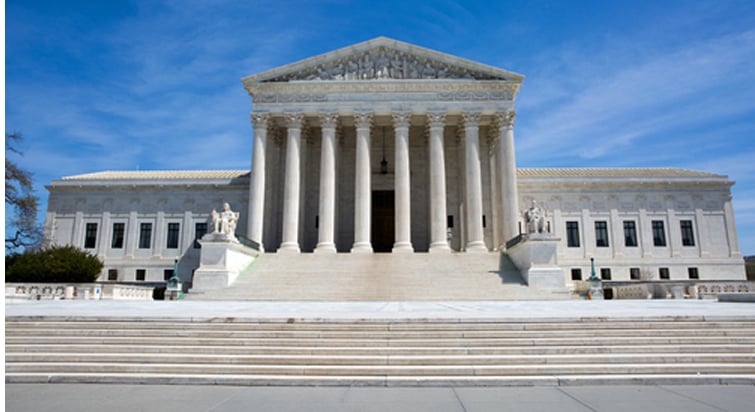Inmate seeking firing-squad execution denied cert; dissent says court 'chooses to stand idly by'

Image from Shutterstock.
The U.S. Supreme Court on Monday refused to hear the case of a Missouri death row inmate who is seeking execution by firing squad rather than lethal injection.
The high court refused to hear the case of Ernest Johnson, who was convicted for killing three people at a Columbia, Missouri, convenience store in 1994, according to ABC 17 News. The court’s most liberal justices—Justices Sonia Sotomayor, Stephen G. Breyer and Elena Kagan—would have heard the case.
Johnson said he has epilepsy as a result of a brain tumor operation, and execution with the drug pentobarbital would cause painful seizures.
Johnson had first sought execution by nitrogen gas. But the Supreme Court ruled in 2019 in a case involving another Missouri inmate, Bucklew v. Precythe, that states could decline to use nitrogen gas because it had no “track record of successful use.” After the Supreme Court ruled, Johnson sought death by firing squad.
Last year, the 8th U.S. Circuit Court of Appeals at St. Louis refused to allow Johnson to amend his lawsuit to pursue a firing-squad execution. The appeals court reasoned that Johnson should have sought death by firing squad earlier, even before Bucklew, Sotomayor wrote in her dissent.
Sotomayor argued that the 8th Circuit decision closing Johnson’s case was an abuse of discretion. Her dissent was joined by Kagan and Breyer, who also wrote a separate dissent.
“The 8th Circuit’s decision punishes Johnson for failing to anticipate significant changes in the law,” Sotomayor wrote.
Sotomayor said Bucklew recognized that alternative methods of execution need not be authorized by state law.
“Unlike nitrogen gas, the firing squad has a long track record of successful use,” Sotomayor said. “Missouri itself suggested the firing squad as an alternative to nitrogen gas during oral arguments in Bucklew.”
Sotomayor said the 8th Circuit had ensured that no court will review Johnson’s claim “despite the risk of severe pain rising to the level of cruel and unusual punishment.”
“We should not countenance the infliction of cruel and unusual punishment simply for the sake of expediency,” Sotomayor said. “That is what the 8th Circuit’s decision has done. Because this court chooses to stand idly by, I respectfully dissent.”
The case is Johnson v. Precythe. Hat tip to SCOTUSblog.



